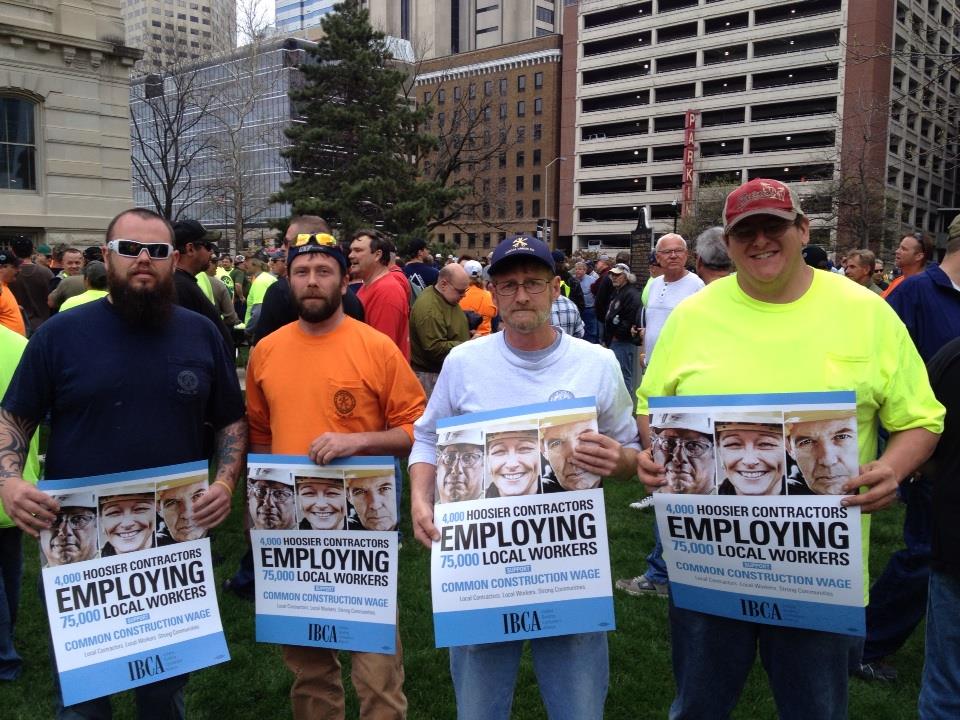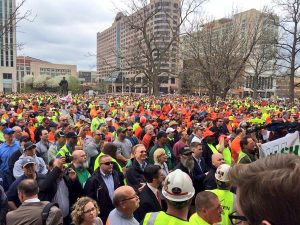

Labor is not alone in its opposition to this proposed law. More than 30 Indiana mayors have come out against the law, including the mayors of Evansville, Boonville, Mt. Vernon, and Rockford. In Bloomington, where a mayoral election is underway, Democratic challenger Darryl Neher has voiced strong support for the CCW, calling repeal “a short-sighted and foolhardy attack on the working men and women of Indiana.” Neher has proposed that the city council take action and draft legislation that allows Bloomington to maintain its ability to pay fair wages on publicly funded construction projects.
South Bend Mayor Pete Buttigieg called on his city council to make a similar move earlier this year. As he noted at the time:
“We can hold ourselves to a higher standard, and as the Economic Policy Institute suggests, in the process we can ensure worker safety, maintain the highest standards of construction quality, keep construction costs competitive and pay fair and livable wages.”
The bill, first passed in the Indiana House, is labelled HB 1019. It passed the Senate Tax and Fiscal Policy Committee by an 8-5 margin last week, meaning the Governor and conservative Republicans are one step closer to repealing that state’s Common Construction Wage which has worked for over 70 years. All committee Republicans voted in favor of the bill except for one, Senator Ed Charbonneau, who joined Democrats in voting against the wage-limiting bill.
Indiana’s Common Construction Wage is similar to the prevailing wage which sets wages and standards on publicly financed projects. Unlike the prevailing wage, the Common Construction Wage is determined by local boards composed of employers, Union representatives and two members of the local community.
Related News
- RME members: Make your voices heard ahead of national negotiations!
- Tom Wiant moves from International rep. to assistant to the general president
- SMART TD, TTD Set For Victory Over Carriers On Train Length Data Collection
- BE4ALL Canadian Labour Spotlight: Helen Jury Armstrong
- SMART-TD, RME members secure paid sick leave for rail workers at Union Pacific
- SMART-TD Leaders take to the UAW picket line at a Jeep plant in Toledo, OH.
- SMART statement on Inflation Reduction Act anniversary
- Minnesota SMART members win legislative victories across sheet metal and transportation
- SMART remembers and honors all who have made the ultimate sacrifice
- SMART Women’s Committee welcomes new members